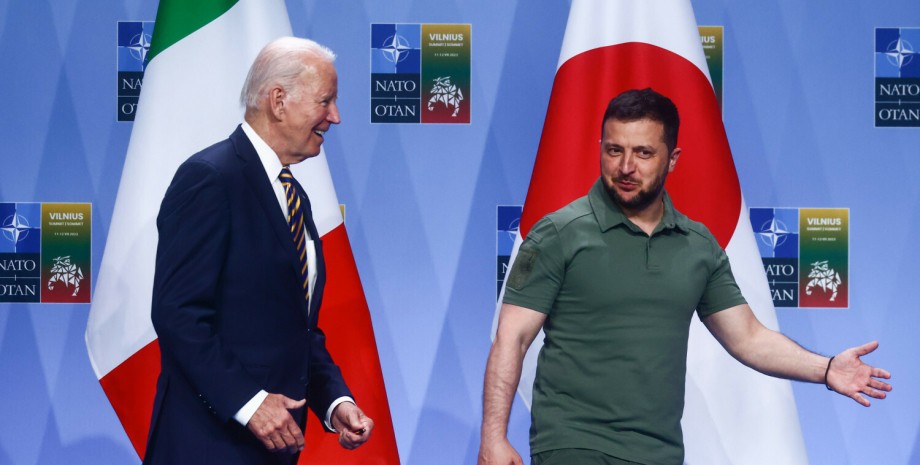
 By Natali Moss
By Natali Moss
This is necessary for guarantees that the US will not stay on the hook of payments, writes Financial Times. According to FT, the US proposal is set out in a document prepared for online meetings of the European Country Finance Ministers, which will discuss the possibility of finding advance money for Kiev.
Washington insists on the agreement on the eve of the G7 leaders summit next week, where the financing mechanism, supported by the profit from frozen assets is expected to become a central element of Ukraine support. The main option under consideration is the United States for lending of Ukraine, perhaps in tandem with other G7 countries, which is approximately corresponding to the predictable "unpredictable profits" of hundreds of billion dollars of frozen assets of Russia stored in the West.
Diplomats say it can raise up to $ 50 billion. The exact details of the loan, including its maturity, interest rate, whether it will be provided directly or through an intermediary, such as the World Bank, still has to be determined.
But Washington considers any such credit as "conditional" provided that the EU will distribute the profit from assets to repay and guarantee that "the assets of the Russian central bank in the EU will remain immobilized until Russia agree to pay the damage caused Ukraine. " Such a promise is crucial, since the bulk of Russian assets is stored in the Belgian Central Depository of Securities of the EuroClear securities, which brings approximately 3 billion euros of profit per year.
If the profit does not reach the necessary payments or if the EU is not able to agree on the continuation of sanctions, the US may be responsible. America discusses other potential options for dividing this risk with other partners by the Great Seven. Some EU governments are afraid of the potential financial consequences of such guarantees. "Americans probably have to admit that the EU cannot give an iron guarantee against losses," said a source informed about the course of negotiations.
Another variant under consideration implies that the EU - along with other countries of the "Great Seven" - will actually issue bilateral loans to Ukraine, backed by a profit from Russian assets frozen in their own jurisdiction. This will potentially require the EU to use the "stock" within its joint budget - a step that will also require unanimous consent.
"The time required to introduce such guarantees, together with legal and operational restrictions, will not facilitate the rapid implementation of this option," the document reads. Pressure for the use of assets has intensified in recent months, as Washington seeks to maximize Kyiv financial assistance with a presidential election.










All rights reserved IN-Ukraine.info - 2022